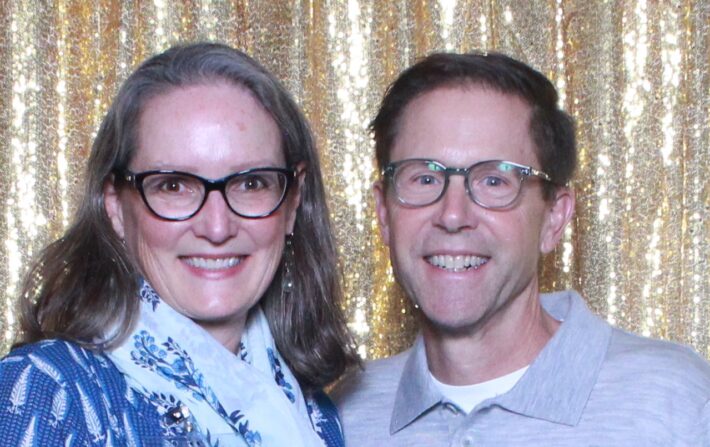
Chris and Chrissie Drape are longtime south Seattle residents. They’ve been married for 35 years and have two grown sons who both live in California. After a career as a nonprofit accountant, Chrissie now works part-time with small clients and volunteers as a tax preparer with United Way at her local community center. Chris, a career educator, has also downshifted to part-time work, training teacher mentors and consulting on educational leadership after decades of teaching, mentoring and leading in educational spaces.
During a Bible study on empire and what it means to live in spite of empire, a fellow participant mentioned Sabbath Economics. The Drapes were intrigued and discovered Faith and Money Network while researching the concept. Having recently made some big life shifts, they were ready to join the 2025 household covenant small group.
In this interview, they share some of the small and large practices they have adopted as they learn more about Sabbath Economics, and how it’s helped connect them more to others and a sense of joy.
Which Sabbath Economics component appealed to you most, and why?
Chrissie: I was initially taken by the conversation about sabbath, which we studied first and was described as foundational for everything else. It surprised me, but it’s been a good mindfulness practice that has impacted all the other topics. I think about it differently now. Observing the sabbath doesn’t mean not doing anything — it means doing things differently one day a week, whether that’s resting, doing something that brings joy, or getting together with other people.
Chris: We’ve been talking a lot about the power of intentionality related to all the components. Starting with a more nuanced exploration of sabbath makes the other practices grounded in a broader idea so they’re not transactional.
What goals did you set for your household after studying and discussing the different Sabbath Economics practices?
Chrissie: One small thing we started with was related to “green living” and how we were using Ziplocs. We have enjoyed figuring out how to store food without using Ziplocs, and how to reuse them rather than mindlessly treating them as a single-use product.
Chris: It morphed into other things, too. Now, when I’m in a public restroom, I only use one paper towel and then my hands can drip-dry the rest of the way. Small scale practices build into mindfulness of other lifestyle decisions, like moving away from Amazon purchases.
A bigger goal we’re still working on is navigating the stewardship of a family farm. We’re exploring options, like putting some of the land into the Conservation Reserve Program (a program of the USDA’s Farm Service Agency), or possibly transferring some land to an ecologically-minded younger family member who wants to farm.
Chrissie: When we discussed consumption, a lot of people in the covenant group made some kind of commitment to getting rid of some of their stuff. We acknowledged that we all have more than we need, and we shouldn’t be sitting on it if we’re not using it. Mike shared a quote from William Morris, “Have nothing in your house that you do not know to be useful or believe to be beautiful.”
It’s very simple, but I think it’s a lovely framework for how to downsize. We all shared ideas with each other of what to do with the stuff that you no longer use. There was some really good sharing about ideas for how to help your unneeded stuff find a new life, not just add it to the landfill.
What did you learn in your small group experience that surprised you?
Chris: I’m an external processor, so it’s fascinating and helpful for me. I appreciate the accountability. Knowing that the meeting is coming helps me be mindful about what I’ve been reading, thinking about, and want to share in the room.
Chrissie: Mike uses the expression, “The smartest person in the room is the room.” Different people have different relationships to each of the topics and materials, and the power of the group emerges every single meeting.
Someone said in the first gathering, “Here we are together, holding each other.” We were talking about accountability, but that phrase revealed a completely different framing for words we’ve all used hundreds of times. It was amazing.
Chris: Mike also says, “there’s no commitment too big or too small.” The point is to start and be mindful. That helps people to show up and really share even the tiniest practice. It’s not the goal to try to frame yourself as already having the whole thing figured out.
How has your lifestyle changed since working toward your goals?
Chris: It is helpful to categorize some of these big-picture abstract things that make the big picture of Sabbath Economics much more tangible. This covenant group makes the conversation about faith and money concrete in ways that make it easier to be intentional about different aspects of this.
Chrissie: We were looking for this framework to be more intentional about our life. It feels like a helpful way to enter into a regular practice. I suspect that friends of ours will be in future groups. I’ve already shared some resources with others.
June 2025